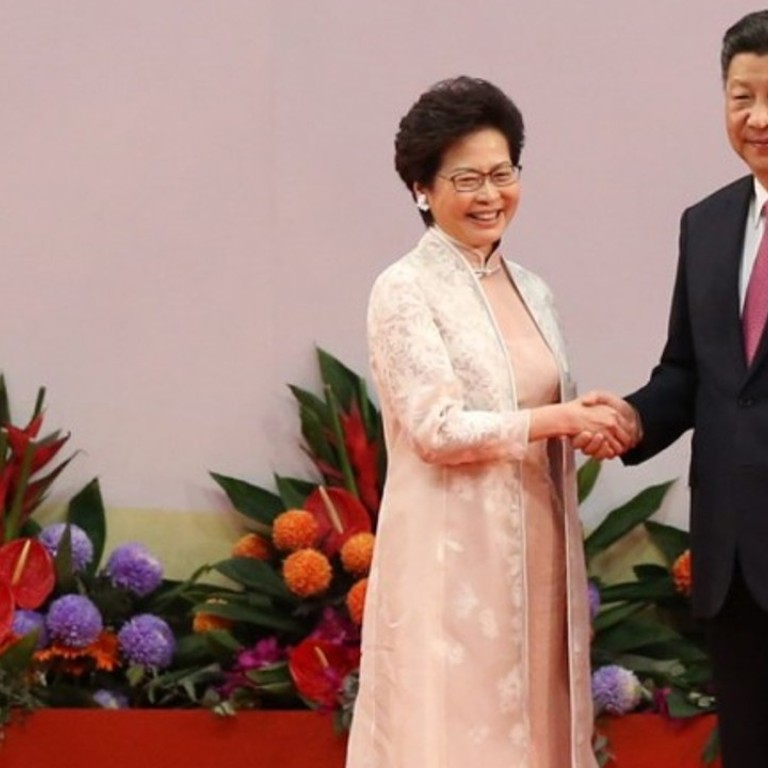
What does Xi Jinping have in store for Hong Kong at China’s 19th Communist Party congress?
Analysts say president will focus on economy and social consensus but may also drop hints on issues like sovereignty and national security
When the Communist Party’s congress kicks off on Wednesday, all eyes may be on the reshuffle of the inner sanctum of the central leadership, however for Hong Kong, all ears will be on a small but significant part of President Xi Jinping’s speech.
Similar to his predecessor Hu Jintao’s report five years ago, the city’s role and relevance can be expected to feature prominently in his address.
Xi is likely to spell out his expectations for Hong Kong on issues such as economic development and social consensus amid divisions, political watchers predict.
They will also look for signs that shed light on what Xi’s thinking is on sensitive issues such as sovereignty and national security, given how the sudden appearance of pro-independence posters on the city’s campuses has revived a long-standing political row.
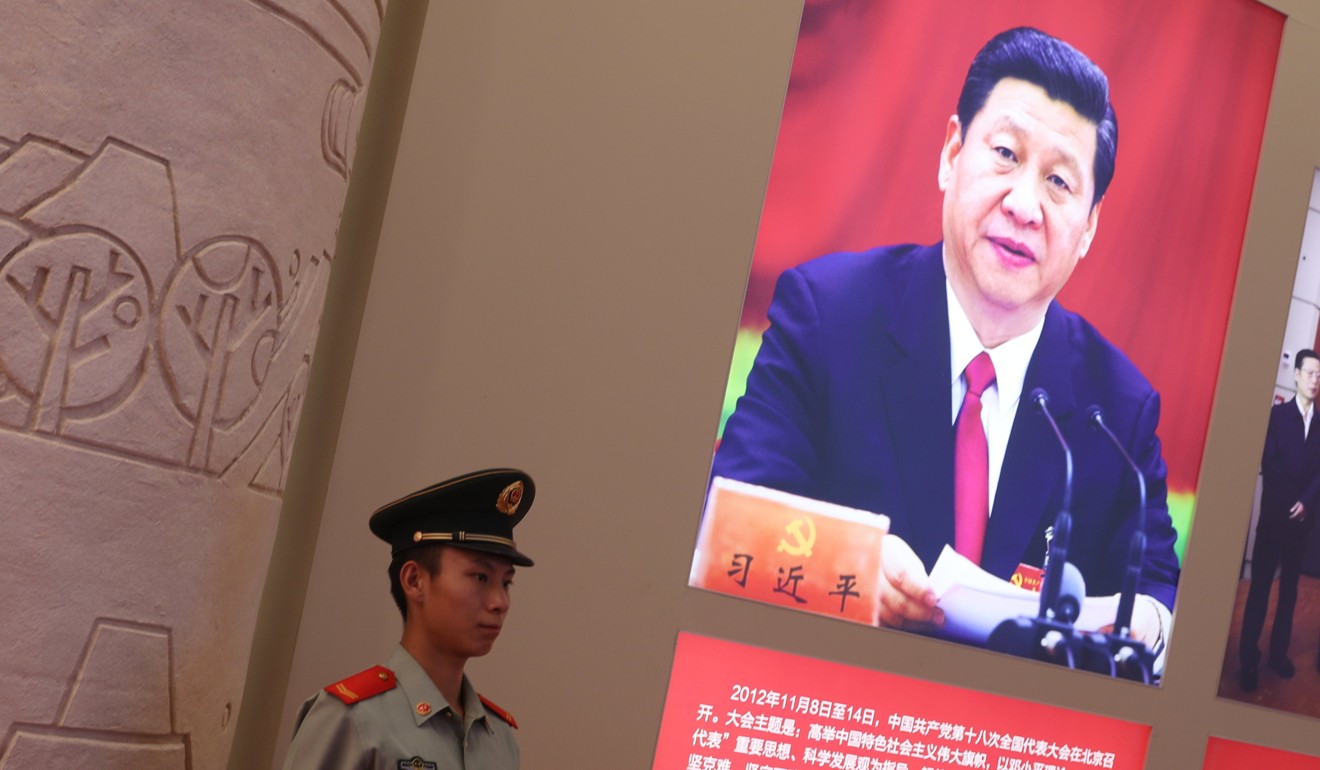
Despite big-picture themes that will guide the address, a crucial personnel issue at the 19th National Congress of the Communist Party of China could prove a distraction. National People’s Congress chairman Zhang Dejiang, the third-ranking leader in the Politburo and top official responsible for Hong Kong and Macau affairs, is expected to step down, and the guessing game has begun over who will replace him.
The change follows Zhang Xiaoming taking the helm at the State Council’s Hong Kong and Macau Affairs Office while Wang Zhimin succeeds him at Beijing’s liaison office in the city.
The moves have sparked debate – some say fanciful speculation – on whether there will be any shifts in Beijing’s policy on the city.
It’s policy – not personnel
But Tam Yiu-chung, a local delegate to the Chinese People’s Political Consultative Conference, the mainland’s top political advisory body, doubts that Zhang being succeeded by Wang would mean “any obvious change” towards the mainland’s Hong Kong policy.
Beijing-based professor Qi Pengfei, director of Renmin University’s research centre on Hong Kong, Macau and Taiwan, also shrugged off talk of a major policy shift. “Change in personnel would not bring change in the central government’s principles and policies on Hong Kong. These principle concerns defending national security and ensuring the city’s long-term prosperity and stability,” he said.
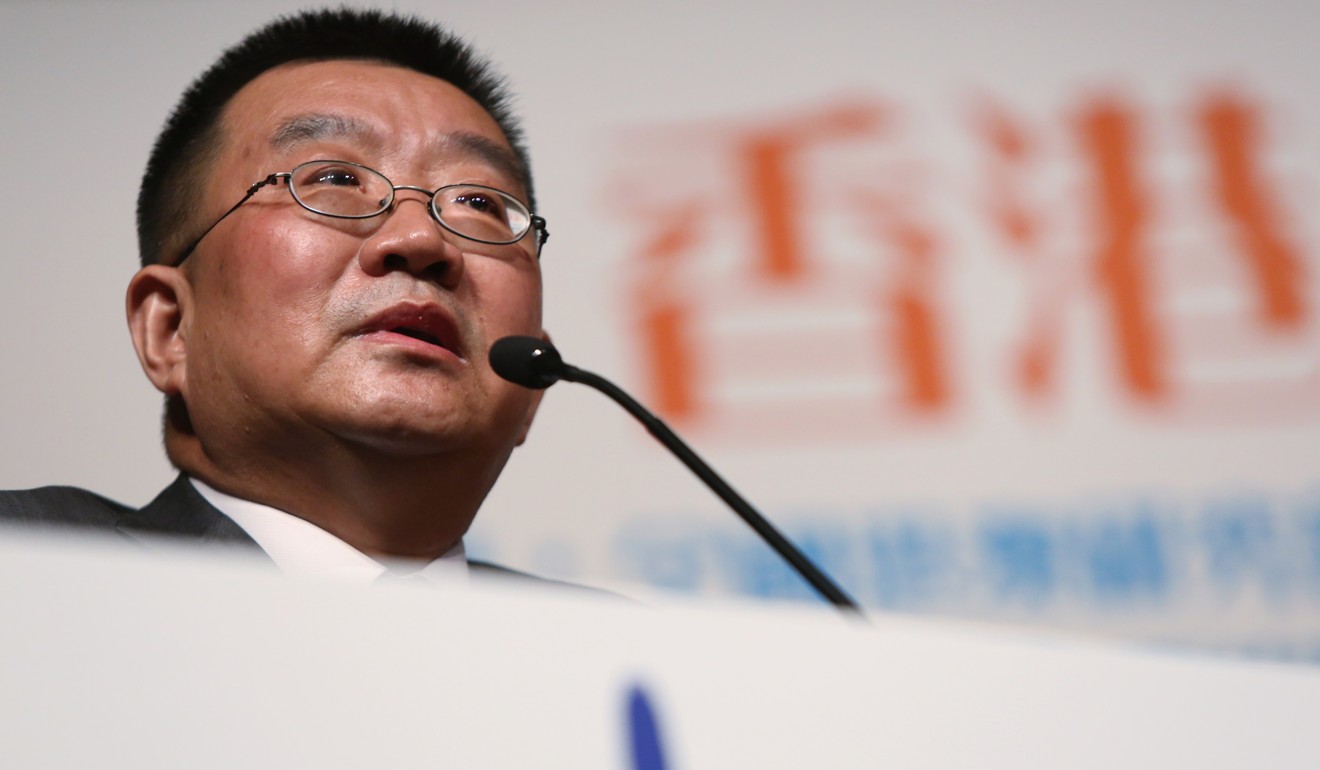
Put more bluntly, personnel will hardly affect policy. Policy has been – and will be – determined by Xi.
So, where does Xi stand on Hong Kong? His messages were well laid out in his speech to the city in July, analysts agreed.
The key will be to look out for further advice or slight shifts, they said.
The section on Hong Kong, Macau and Taiwan affairs may have been pro-forma for all party congress reports since the 15th congress after the city returned to the mainland in 1997 but the key messages for the city have become more detailed in recent years.
Top cadres put finishing touches to preparations for Communist Party congress
In 2007, for example, then president Hu said in his report: “We would firmly and unswervingly implement the principles of ‘one country, two systems’, ‘Hong Kong people governing Hong Kong’ … and ‘the high degree of autonomy’”.
This signalled a new determination to get the “one country, two systems” principles right, observers had said.
Then in 2012, at the 18th party congress, Hu said Beijing would “comprehensively and accurately” implement the “one country, two systems” model.
These words were later matched with action.
Beijing drops a bombshell
Almost two years later, in June 2014, the State Council, or cabinet, dropped a bombshell with a 15,500-word white paper on the “accurate” understanding of “one country, two systems”.
Beijing, it stressed, had comprehensive jurisdiction over Hong Kong. Instead of having full autonomy, the city was only given the power to run its affairs as authorised by the central government. In other words, the autonomy was limited to what Beijing allowed.
The paper was issued when Hong Kong was debating political reform to achieve universal suffrage for the chief executive in 2017, as promised by the central government, and when local academics and pan-democrats were planning the Occupy civil disobedience movement to push for democracy.
Two months after the white paper, Beijing laid down a stringent framework on Hong Kong’s political reform in August 2014. Predictably, the reform package put forth by the local government was rejected by the Legislative Council in June 2015.
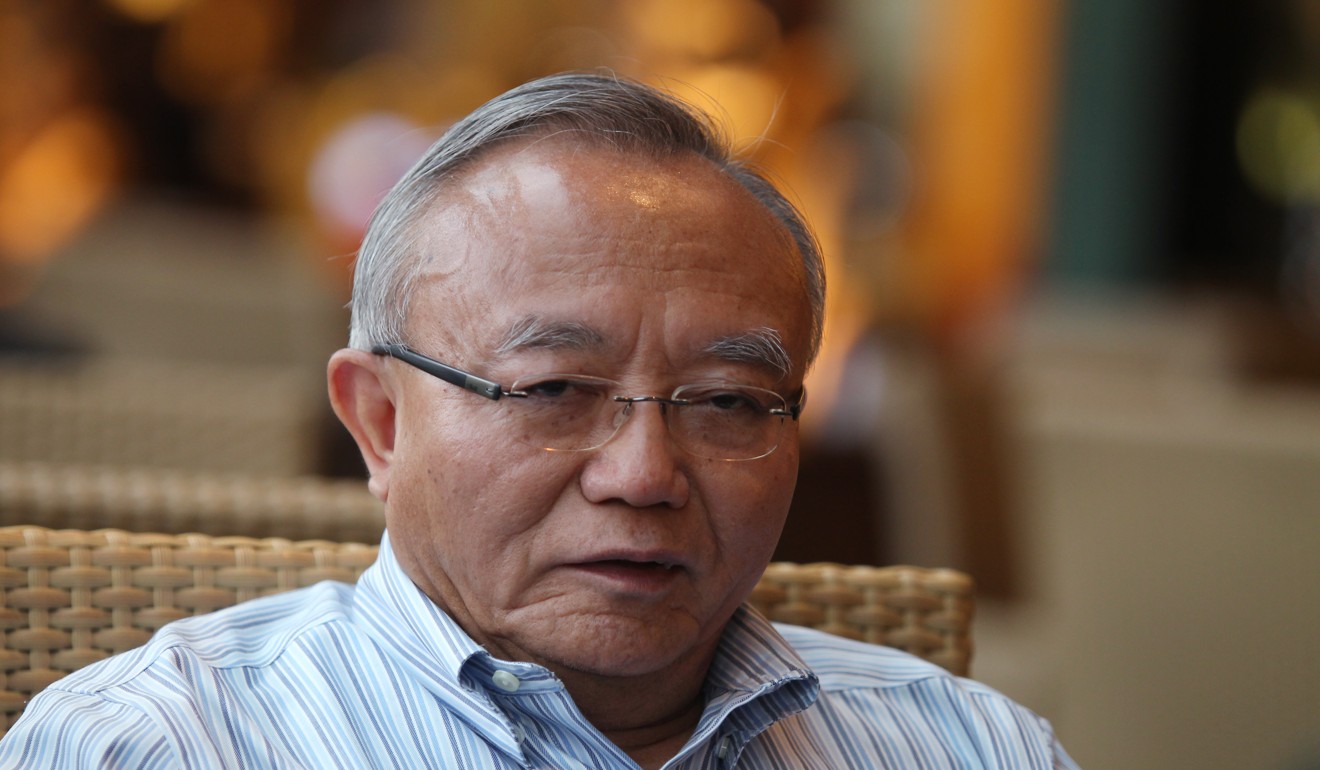
This time around at the 19th party congress, Professor Lau Siu-kai, vice-chairman of The Chinese Association of Hong Kong and Macau Studies, a semi-official think tank, expects “the report would reiterate on the importance of a comprehensive and accurate implementation of the Basic Law and the ‘one country, two systems’ principle.” The Basic Law is Hong Kong’s mini-constitution.
Qi, the Beijing-based professor, said given the detailed explanation on the city’s future Xi gave when he spoke in Hong Kong in July, “the part on Hong Kong in the report on October 18 will be a highly [condensed] summary of principles”.
Xi sets the red line
During his visit on the 20th anniversary of Hong Kong’s return to China, Xi had struck a tough yet tempered tone as he laid out his vision for the city.
“Any attempt to endanger China’s sovereignty and security, challenge the power of the central government … or use Hong Kong to carry out infiltration and sabotage activities against the mainland is an act that crosses the red line.”
He made it clear that political bickering was dragging down economic development, as he called for consensus over the value of the “one country, two systems” model of governing Hong Kong.
And he signalled the need to “seek broad common ground while allowing for major differences” to build a better Hong Kong as he urged Hongkongers to be confident of their future.
Xi also tied the city’s future under “one country, two systems” to his vision of a rejuvenated China.
Achieving the “Chinese dream of the great rejuvenation of the Chinese nation” was the cornerstone of the agenda Xi laid out for his government two weeks after taking over the helm of the Communist Party in late 2012.
China steps up security on North Korea, India and Myanmar borders for Communist Party congress
Making that dream come true will require the fulfilment of “two centenary goals” – the building of a “moderately prosperous society in an all-round way” by the time the party celebrates its 100th birthday in 2021 and the creation of a “rich, powerful, democratic, civilised and harmonious socialist modern country” by 2049, the 100th anniversary of the founding of the People’s Republic.
Lau Siu-kai said Xi’s “definitive and authoritative” July speech made “clear that the central government wanted to turn things around in the city”.
“There’s been political turmoil in Hong Kong while the city’s economy has been growing slowly, without much direction … If Hong Kong is still a mess by 2021, how can it fit into the country’s goal?” Lau said.
Hong Kong’s crucial role in mainland economy
Enter the role of economics in solving some of the city’s woes. Lau expects the report on Wednesday to “also pledge to guide Hong Kong to take part in national strategies such as the Greater Bay Area, and the Belt and Road initiatives”.
The bay area project seeks to encourage deeper economic integration between Hong Kong, Macau and their nine neighbouring mainland cities, while the Belt and Road trade and development plan spans more than 60 countries from Asia to Europe.
Professor Ho Lok-sang, dean of business at Chu Hai College of Higher Education, said Hong Kong’s role will also matter in China’s economy as it seeks to deepen entrepreneurship and innovation.
Ai Weiwei attacks latest Chinese crackdown on free speech and sees little hope Communist Party Congress will bring changes
“In the aspects of entrepreneurship and innovation, Hong Kong has been more lively in recent years than before … while the atmosphere for entrepreneurship is also good on the mainland,” he said.
Simon Lee Siu-po, senior lecturer and former assistant dean of Chinese University’s business school, said he believes that Hong Kong will continue to be China’s premier financial centre.
“The chief executive had promised to help small and medium enterprises in the city and support innovation … but our land shortage is more acute than in the mainland and our rent is too high for entrepreneurs,” Lee said.
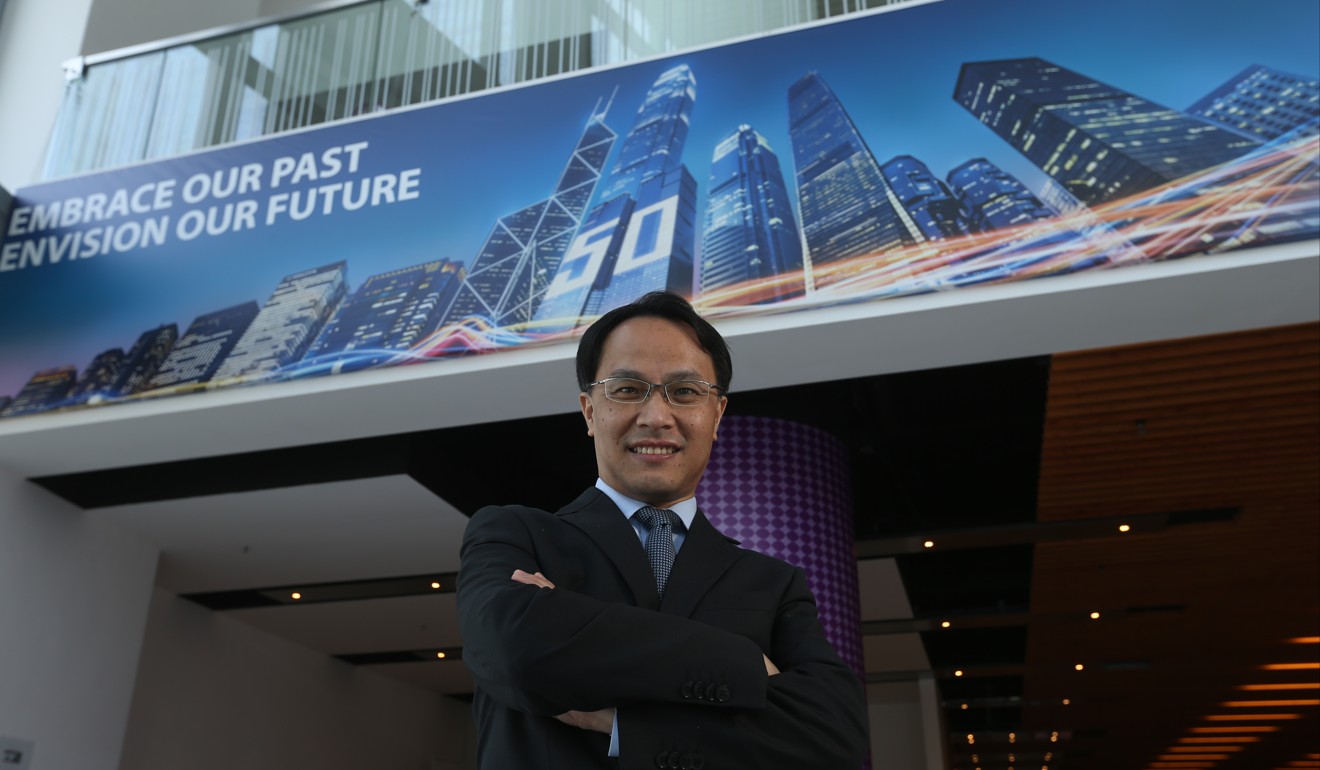
He believes that Hong Kong’s medical schools can cooperate with mainland and overseas institutes in developing biomedical technology.
The economist added: “Hong Kong is a highly open city, with a better international network and gathering of talents … It will continue to be a role model and the mainland would need time to catch up.”
As Premier Li Keqiang unveiled the nation’s latest five-year plan in March last year, Beijing pledged that Hong Kong would play a bigger role in the nation’s development, and support would be given to boost its role as a global financial, shipping and trading hub, as well as to develop its technology sector.
Hong Kong’s leader, Chief Executive Carrie Lam Cheng Yuet-ngor, also announced initiatives to boost the city’s innovation and technology sector, as well as a profit tax cut in her maiden policy address on October 11.
Lam walks a fine line
But economics cannot be separated from politics, say commentators. In Beijing’s eyes, whether Hong Kong’s economy can turn a new page would depend on whether Lam and her administration could cool the political temperature in the city in the coming years.
Hong Kong leader Carrie Lam says she prays for city’s youth daily, warns them to ‘think thrice’ before breaking law
She also studiously omitted mentioning “Hong Kong independence” even as she said Hongkongers have “the obligation to say ‘no’ to any attempt to threaten our country’s sovereignty, security and development interests”.
While Lam said she shaped her addressed based on public feedback, observers say Lam was probably taking her cue from the central government not to dignify any nascent movement with a name.
Expect a new warning on independence
Looking to Xi’s speech, Lau said: “Xi’s speech might not mention the sensitive phrase ‘Hong Kong independence’ … but it’s reasonable to expect a fresh warning that internal and external forces, including those from Taiwan, must not use Hong Kong as a base to challenge China.”
Even if there is no explicit mention of the word “independence”, Lau expects the Hong Kong government to face mounting calls to curb pro-independence forces, as well as relaunch efforts on national security legislation.
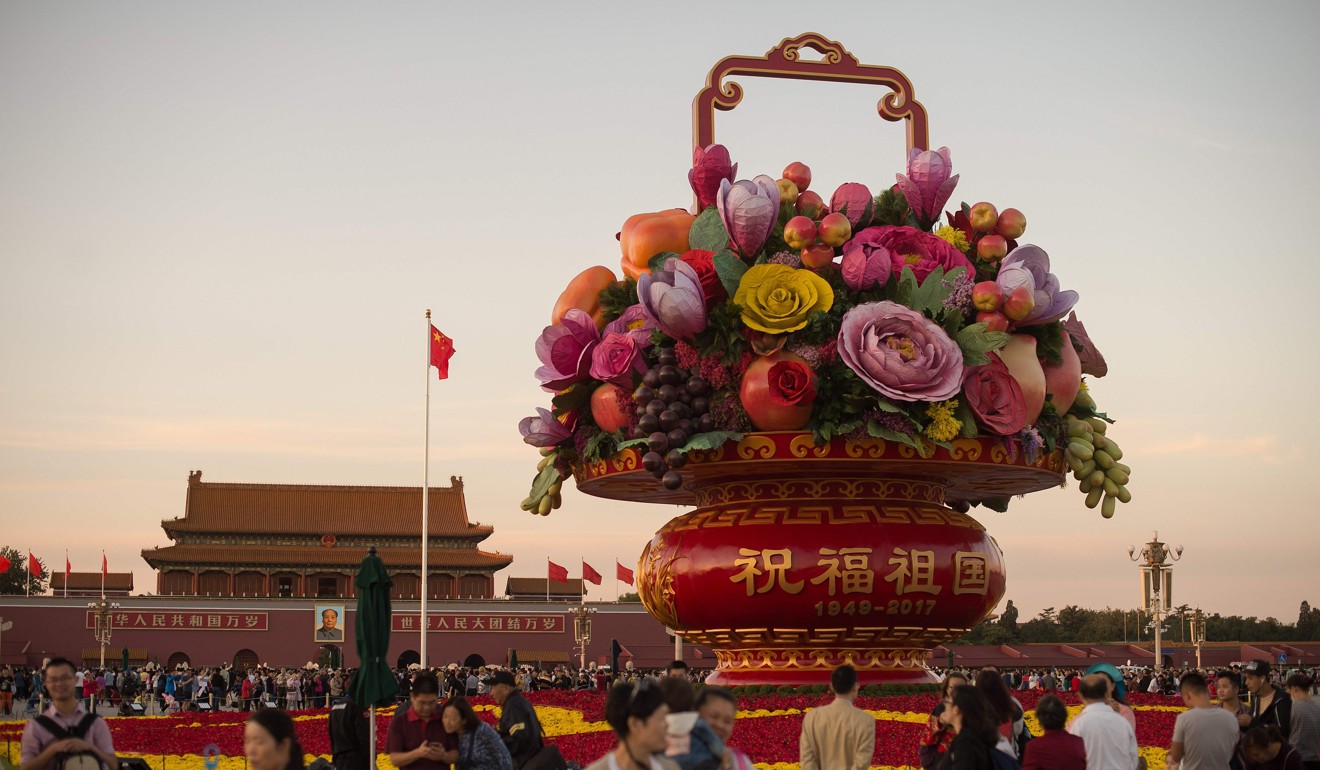
Article 23 of the Basic Law states that the city shall enact a law to prohibit acts such as “treason, secession, sedition and subversion”. But the government’s national security bill was shelved in 2003 after half a million people took to the streets to oppose it, fearing that civil liberties will be compromised.
Lam has said she is not ready to restart the process. But whatever direction Lam and her administration receive from the 19th party congress, no one disputes she will have her work cut out for her in the next five years.

